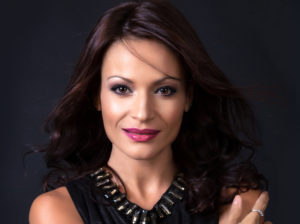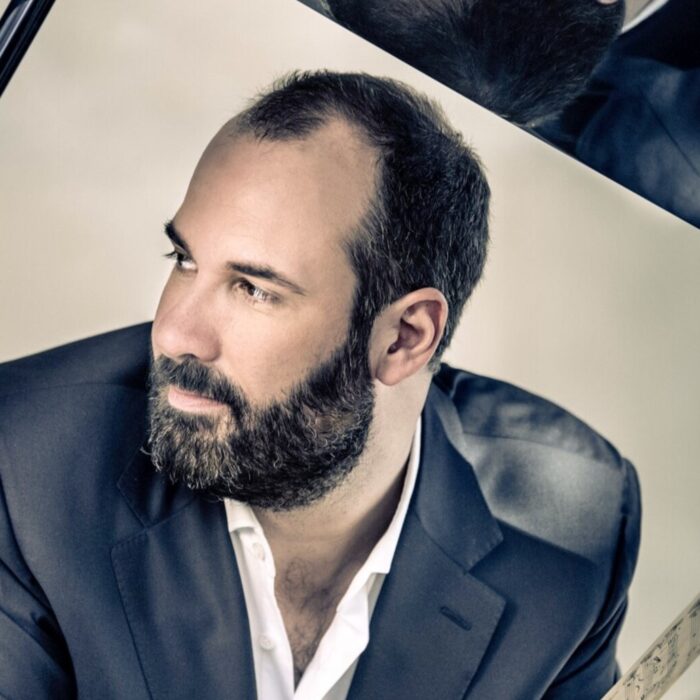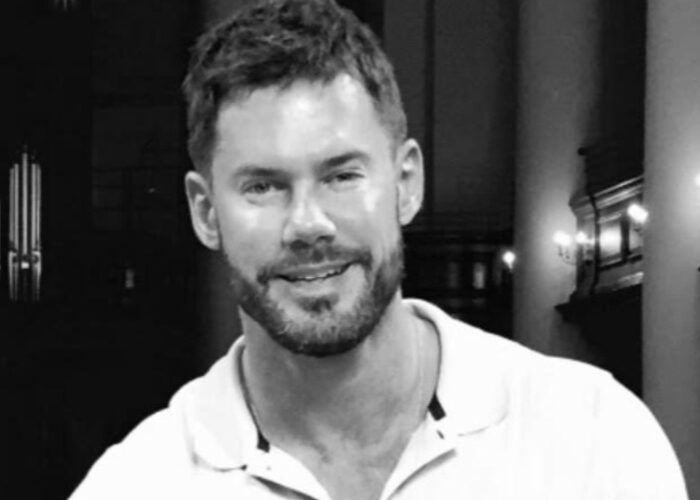
Bel Canto, Verismo & Verdi – Davinia Rodriguez on Carefully Developing Her Voice and Learning New Roles [Exclusive ]
By Francisco SalazarIt is always a challenge to make a role debut in a season, particularly when it features some of the most challenging repertoire in the operatic repertoire. It is an even greater risk and challenge to make three in one season. But don’t tell Davinia Rodriguez as the soprano has spent this season doing just that and succeeding all the while.
The Spanish soprano is one of the rising stars in the world who has obtained acclaim for her work in the lyric repertoire and the dramatic soprano roles. After an early career singing roles like Donizetti’s “Lucia di Lammermoor” and “L’Elisir d’Amore” and Mozart’s “Cosi Fan Tutte,” Rodriguez is making her way into the verismo and Verdi repertoire. “It was during my pregnancy that I kept studying and ten days after the birth of my daughter I had to sing,” she remarked during an interview with OperaWire. “At that point I realized that my voice had adjusted. I had to make a decision to change the repertoire I was singing.”
And that change has worked for her as she is taking on three new roles this season.
Lady Macbeth
The Spanish Soprano, who hails from Las Palmas, began the season learning the role of Lady Macbeth for a new production at the Theater an der Wien, a company she had already performed at in the role of Lucrezia in Verdi’s “I Due Foscari.” However, for Rodriguez, Lady Macbeth was a big step. “It’s one of the most complicated roles in the repertoire.”
Lady Macbeth requires a voice that can easily move from the very extremes of the soprano voice and at times even become a mezzo. It is a role that has three arias for the soprano and a drinking song that requires a lightness to the voice.
While preparing the role, Rodriguez brought it to her mentor, legendary soprano Sylvia Sass, a well-known Lady Macbeth in her time. “She helped me technically because she understands my voice so well. She told me where the tricky spots were and she went through each passage with so much detail. And she was so detailed about the interpretation that it allowed me to really discover my own Lady and give it my own personal touch,” Rodriguez revealed.
The results were a triumph on opening night as critics raved about her work as an actress, something she treasures. “What I really enjoyed was doing the sleepwalking scene because it contrasts so much between the low notes and high notes. Plus she is so crazy at this point due to her ambition,” Rodriguez noted.
Adding to the importance of the occassion was the fact that she was able to work with the legendary Plácido Domingo, whom she previously had the opportunity of working with several times. “It was magical to sing with him. He is an artist who has contagious energy. He is a man with so much energy and we really had great chemistry.
“With just a look, he gave you a lot to work with and it was reflected onto the audience.”
And the connection was made stronger according to Rodriguez thanks to director Roland Geyer who wanted it to feel like Lady Macbeth and Macbeth were one. “Throughout the the production I had a glove on the right hand while he had one on the left side. We complimented each other. It was brutal and unforgettable and I think we really became Macbeth and Lady Macbeth.”
Her connection with Lady Macbeth became so strong that Rodriguez could not get her out of her skin. “I want to do this role again. I feel like I was possessed by her because three hours after the performance she was still inside me. The music is one thing but interpreting her is something quite extraordinary.”
After such acclaim the production elevated her status as a rising star and became “the best experience I have lived on stage.”
Following so much acclaim Rodriguez was surprised with an offer she could not refuse – Nedda in Leoncavallo’s “Pagliacci.”
Verismo
“The moment I heard there was an opportunity to do Nedda, I immediately went for it. It’s another role debut in this year,” the soprano revealed.
Rodriguez is performing the role at the Teatro Regio di Torino, one of the most important theaters in Italy and she will be doing it under the direction of Nicola Luisotti. The chance allows Rodriguez to further explore the Verismo repertoire.
Verismo is known for its extreme emotions and the music can often be damaging to the voice if pushed beyond its natural limits. “Technique is crucial to this repertoire. At the beginning, you let yourself get touched by the passion and power of the music. But it has to become a little mechanical on stage because you only have one shot so everything has to be in place.
“One of the most difficult things about Nedda is to have the control and not let yourself go by the intensity of the music,” she elaborated. “It has these powerful lines that can easily make you go overboard. But I know I have to be cold and think a lot about the technique. The more I do, I know it will be more effective to the audience.”
For Rodriguez having a background in the lyrical repertoire is helpful in maintaining the voice fresh in some of the more challenging sections. “Nedda has these sublime moments and high notes. I’ve kept what worked before and while I developed a lower register all my high notes are still intact and they are even more full. Having done all the coloratura and lyrical repertoire was very important to keeping the voice flexible.”
Rodriguez’s preparation has been very fulfilling, allowing her to delve deep into the role and its psychology. “With every new new role I study and research as much as I can. I look at the music and drama.”
This is aided by the fact that her husband, Riccardo Frizza, is a conductor. Rodriguez makes sure to look at the score and learn the whole opera so she can be even more involved with the drama. “I always take advantage of looking at the scores and looking at the harmonies and the instruments that are part of accompaniment. When you open the full score your whole world opens up and you know what is going to happen. My husband has really taught me to look at those small details.”
Rodriguez has also made sure to delve into Nedda’s backstory to fully comprehend this complicated heroine. “I have discovered it is a beautiful role and while it is short, it is extremely intense. Nedda has been abandoned by her family and was obligated to live with a traveling circus.
“She has basically been raised by Canio. You have to imagine how much she suffered and how much she missed out on love. To be obligated to be Canio’s wife and to perform every night and not necessarily love what she does, that’s tough. She has this will to be free. She reflects herself with birds and she just wants to have that liberty that they have.”
Donizetti and beyond
The final piece of the debut triumvirate is Donizetti’s “Maria Stuarda,” which allows Rodriguez a return to her beginnings in the Bel Canto repertoire. The work is the central movement in Donizetti’s Tudor trilogy, which Rodriguez noted that she would love to take on all three operas. However, for now she is sticking to “Stuarda.”
“It is going to be a big challenge but all the previous work in lyrical roles will help me a lot,” she emphasized. “Bel Canto requires great control and I think I’m going to be very comfortable in this role.”
But she does recognize that having experience with Bel Canto is not enough.
“You have to work really hard. I can’t say I’m going to debut it and that’s it. No matter how much I sing something, I always discover something and continue to study it. I also discover something new from my own instrument.”
As Rodriguez continues to study and develop her voice, she admits that she is always looking at new scores. Even as she is preparing Nedda, she has already looked at “Maria Stuarda.”
“I never wait to get the contract. I love looking at roles, studying them and then putting them away. I let them breathe and then I look at them again. But it should also be organic.”
One score she might take a look at sometime in the near future?
“I would love to sing Flora Tosca. But I have to be patient and be cautious because I want to be singing for a long time. But I know it will come.”


